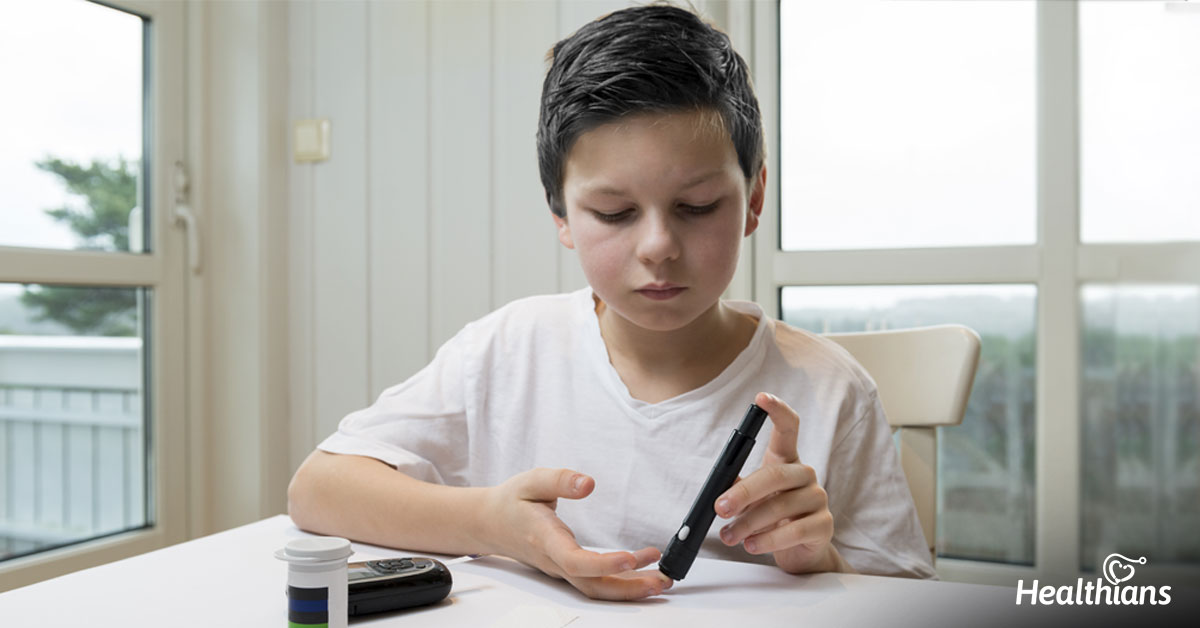Contributed by – Healthians Team
Did you think that Type 2 Diabetes is a prevalent disease among adults? Think again!
Type 2 Diabetes is no longer a disease that affects adults only, the past decade has proved the contrary. A large number of childhood Type 2 Diabetes cases have been detected in the previous years raising a huge concern. What exactly is the cause behind the sudden spike in the incidence rate? Could it be the rise in obesity and our unhealthy lifestyle choices.
Type 1 Diabetes also known as juvenile diabetes was the common kind of diabetes prevalent in children but the not anymore. More and more young people are falling prey to diabetes. Type 2 Diabetes is a chronic disorder which affects the functioning of the body. The rise in childhood diabetes is really scary and proper steps to avoid Type 2 Diabetes from the very start have to be incorporated. It is important to know about Childhood diabetes to find the right ways to tackle it.
Type 2 Diabetes In Children
The incidence of both Type 1 and Type 2 Diabetes is seen to be on the rise in children and young adults. Type 1 Diabetes is often identified with hyperglycemia or high blood sugar levels due to absolute insulin deficiency caused due to the destruction of the insulin-producing beta cells of the pancreas.
Type 2 Diabetes cases in adolescents and young adults have dramatically increased in the recent years. Also, known as the older-onset diabetes, Type 2 Diabetes is no longer prevalent only among adults. The major risk factors that have fueled the rise in the diabetes cases are:
- Obesity
- Family history
- Sedentary lifestyle
- Unhealthy Lifestyle Choices
Onset of diabetes at a younger age also increases risk for chronic complications in the long run. There is emerging evidence that genetic mutations unique to the Indian population are contributing to MODY (maturity onset diabetes of the young). This study exposes the horrifying truth and demands immediate action.

Symptoms Of Type 2 Diabetes In Children
Type 2 Diabetes among children is really hard to detect as the disease progresses gradually and can be extremely heterogeneous in terms of symptoms. Some of the major symptoms that can raise alarm are:
- Obesity
- Excessive fatigue
- Excessive thirst
- Increased hunger
- Slow healing of wounds
- Frequent urination
- Hypertension (high BP)
- Dyslipidemia (Altered lipid levels in blood)
- Polycystic ovarian syndrome (resulting in hormonal imbalance in young females)
- Acanthosis nigricans (dark pigmentation of skin)
In rare instances, visual impairment and kidney damage may also be seen. It is necessary to seek medical help in case of any doubt or presence of the mentioned symptoms. Regular health tests to monitor the health status of the kids is also really important.
Diabetes Management In Kids
The management of diabetes in children and adolescents is a challenging job. Insulin and metformin are the only agents approved for the management of Type 2 Diabetes in children and adolescents. The treatment for Type 2 Diabetes is same as that for adults but the growth needs plays the tricky part. Thus, the plan needs to depend on the age and particular needs of the specific child. A child suffering from Type 2 Diabetes needs special attention and proper monitoring with regular blood sugar monitoring, diet management, timely intake of medication.
It is better to plan a proper prevention plan from the very start to avoid the early childhood encounter with Type 2 Diabetes. Some of the suggestions include:
- Imbibe healthy habits: Teach your child healthy habits from the very start. Involve your children in an active lifestyle with timely healthy meals. Make sure to serve well balanced meals with a moderate intake of sugar on a daily basis
- Active lifestyle: Make sure that your kid is active. Indulge your kids in outdoor activities and more physical workout. Preventing obesity also plays a major role
Make a healthy lifestyle for yourself and your kids as well. Start adopting the style of healthy living today to make a healthy tomorrow.





